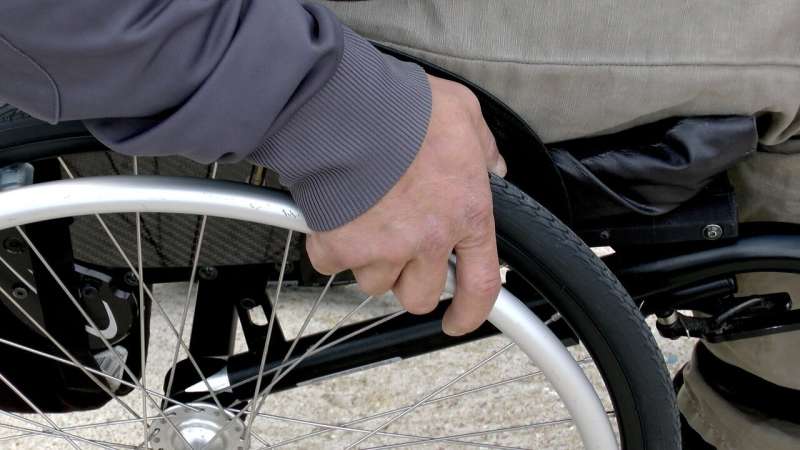Written by Zoe Beketova, Medical Press, December 9, 2024

People with disabilities (PWD) make up 25% of the U.S. population. They face elevated mental health concerns and are more likely to utilize mental health services compared to non-disabled individuals. Yet, PWD also report higher unmet mental health service needs and barriers to accessing care.
Dr. Katie Wang, Ph.D. ’14, associate professor in the Department of Social and Behavioral Sciences at the Yale School of Public Health (YSPH), and colleagues recently examined the experiences of PWD who engaged in mental health services. The study is published in the journal SSM – Qualitative Research in Health.
“We interviewed 20 U.S. adults with a wide range of visible and invisible disabilities,” said Wang, a social psychologist and the study’s lead author. “Participants identified ableism as a major concern when they talked about their experiences in seeking mental health services.”
Ableism is prejudice and discrimination against people with disabilities, based on the belief that people without disabilities are superior. It can be conscious or unconscious and is embedded in institutions, systems, and society as a whole. It manifests in many forms, including harmful stereotypes, misconceptions, and generalizations.
This can include the belief that people with disabilities are less able to contribute and participate in society; and the belief that people with disabilities are to be pitied or viewed as inspirational rather than just as normal human beings.
Participants in the qualitative study ranged in age from 22 to 67. Their disabilities included chronic health conditions (e.g., epilepsy), mobility disabilities (e.g., spinal cord injury), sensory disabilities (e.g., blindness) or, for a majority, a mixture of different disabilities alongside mental health conditions.
Upon speaking with the participants about their experiences with mental health care providers, the researchers identified several recurring themes. A common experience cited was providers holding misplaced assumptions about the impact of disability on mental health as well as a general lack of knowledge about disability, either overlooking the connection between mental health and the disability or minimizing the role of disability in a person’s life. Many participants also described providers not believing their lived experiences, being stereotyped, or ignored.
“These results underscore the importance of emphasizing disability competency when training the next generation of mental health providers,” Wang said.
Care is a challenge for people with multiple minority identities
The study also explored the quality of mental health care received by individuals with multiple minority identities, including having a disability. Such individuals often struggle with receiving professional help, yet little research exists on the issue.
One of the participants, when discussing an unhelpful provider, said that it’s hard for them, as a person with many minority identities, “to know which identity it is and why it triggered them [the provider].” The researchers found that having intersecting minority identities—such as being Black or transgender and disabled—presents additional barriers to receiving quality care.
Systemic ableism undermines good intentions
Another major point raised by participants was the systemic ableism within mental health care systems. “What struck me in particular is the findings pertaining to systemic ableism, specifically, how even well-intentioned mental health care providers can perpetuate ableism, given that they are working in a fundamentally ableist system,” Wang said.
“None of the people … want to hurt us, but the structures are built to hurt us and so they always will,” one of the participants stated. Participants raised this point when discussing the emotional pain providers often unwittingly caused them during a mental health session.
A need for better access to care
A final point identified in the study was that physical accessibility barriers also present obstacles for PWD accessing mental health care. Telehealth, a form of online health care support, has been praised for mitigating some of the physical barriers that people face, but not all participants in the study could navigate virtual interactions. For example, lip reading is particularly difficult behind a virtual screen, some deaf or hard of hearing participants said.
“I think what we want to be careful of, and what a lot of participants were warning against, is we should not be thinking of telehealth as a silver bullet,” Wang said. “It does not fix accessibility across the board. It does not remove all access barriers. But having telehealth as an additional tool in the toolbox is definitely a benefit for the disability community.”
In response to the findings, the researchers are calling for systemic structural reforms such as increased training on disability competency for providers as well as the recruitment and—vitally—retainment, of disabled faculty and students to normalize discourse. For practitioners, the study recommends self-education on disability awareness and more of a focus on improving accessibility to their care, whether through increased flexibility, universal design practices, or openness to learning about disabilities.
Wang stressed that ableism is more than just an interpersonal phenomenon: it is deeply embedded in health care systems. With YSPH’s focus on addressing inclusivity, intersectionality, and belonging in public health and health care, studies such as Wang’s shine a light on the experiences of PWD across different conditions and identities when seeking mental health support.
